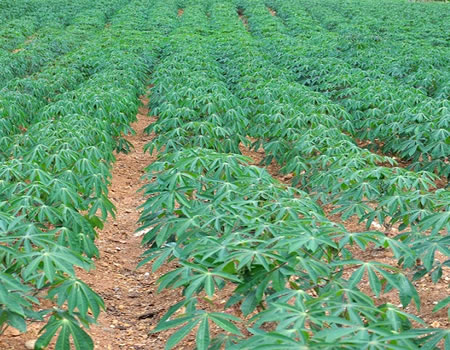IN its resolve to strategically reduce Nigeria’s importation of crude palm oil estimated at about 500, 000 metric tonnes, De-United Foods Industry Limited (DUFIL) has presented the Environmental Impact Assessment (EIA) of its proposed 18,000-hectare oil palm estate and cassava flour mill to the host communities and government in Edo State to close the gap between production and import.
To this effect, the Edo State government has given a concession of 17,954.71 hectares of land within Ekiadolor Forest Reserve in Ovia Northeast Local Government Area of Edo State to the company to develop the two projects.
As part of the EIA process, DUFIL organised an EIA scoping workshop involving critical stakeholders, including some affected villages, government agencies, non-governmental organisations, the private sector operators and the media recently at the conference hall of Best Western Homeville Hotel, Benin City.
Tear gas fired as policemen, soldiers disperse #RevolutionIsNow…
One of the proposed projects is a cassava flour mill factory initiative by DUFIL. The proposed factory will have a capacity to process 200 tonnes of cassava tubers per day. The firm presented to the stakeholders that the cassava peels would be composted for use at the 60-hectare oil palm nursery that would be established to raise the oil palm seedlings.
The product of the project would be High Quality Cassava Flour (HQCF). It would be used by the company for its downstream industrial processing and manufacturing of its range of products.
The project is expected to generate considerable solid and liquid waste. The solid waste to be generated from the cassava flour mill factory is majorly organic waste. The bulk of the organic solid waste (cassava peels) to be generated at the cassava flour mill factory would be processed into composts, which would be used in the oil palm nursery and plantation as organic manure.
DUFIL also presented details of the proposed oil palm estate to stakeholders at the scoping workshop.
It disclosed that about 2.3 million palm seedlings would be planted on about 15,000 hectares of the acquired land.
The oil palm estate would comprise a palm seedling nursery and a plantation. The nursery would be used to raise seedlings for the plantations and for other farmers who might demand quality planting materials.
WATCH TOP VIDEOS FROM NIGERIAN TRIBUNE TV
- Let’s Talk About SELF-AWARENESS
- Is Your Confidence Mistaken for Pride? Let’s talk about it
- Is Etiquette About Perfection…Or Just Not Being Rude?
- Top Psychologist Reveal 3 Signs You’re Struggling With Imposter Syndrome
- Do You Pick Up Work-Related Calls at Midnight or Never? Let’s Talk About Boundaries







